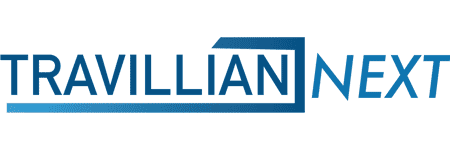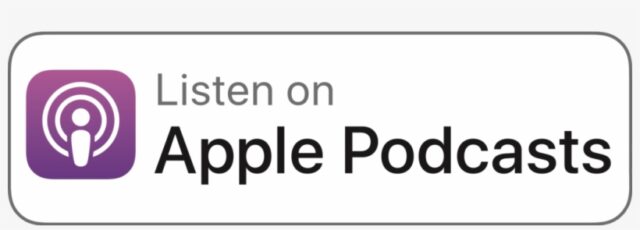As the fight for fee income intensifies, community banks are looking for new ways to compete in an ever-changing landscape. Larger banks are eliminating overdraft, ATM, and other fees that will drastically hurt the bottom lines of community banks. Moreover, government agencies have suggested it may be cracking down even more on fee income.
Keith Daly, Principal of Banking & Fintech Search at Travillian, sat down with Damon Magnuski, Founder and CEO of Acceleron Bank, to delve deeper into these topics. Acceleron Bank is a digital firm that partners with community banks and credit unions to offer FX payment services, which can help turn losses into a profit-generating service while keeping customers engaged with their local financial institutions. As business becomes even more global, community banks and credit unions need a way to produce revenue from international transactions and Damon discusses the potential of new streams of income.
Community Banks & The Battle for Fee Income
0:16 | Damon’s Background & Acceleron Bank Overview
Keith Daly: Very happy to have our next guest on Travillian Next, Damon Magnuski from Acceleron Bank. Can you give the audience just a little background on your experience in banking and an overview of Acceleron?
Damon Magunski: My experience is pretty unique for a banker. I started out working in nuclear power, repairing power stations worldwide, and I noticed some of the projects I was on lost money just based on foreign exchange, right? Then I transitioned to training to be an options market maker at the Chicago market talent exchange.
Like the pit guys like yelling all crazy. So, I was doing that for a little bit and my mother-in-law was sending some money to her other daughter in France for a wedding and she asked me if I could protect it, if she should do it now or do it later. And I said, Hey, I’ll buy you an option, protect you, if it moves against you, you’ll get a little upside if it moves in your favor.
I couldn’t do it because her transaction size was too small. So, we kind of went down a road of protecting transactions and we figured out that we’re paying way too much for foreign exchange. And so we transitioned to becoming a bank, and now I’m a banker.
Acceleron is a digital correspondent bank, and what that means is our clients are only community banks and credit unions.
Typically, under 10 billion in assets is our bread and butter. We’re happy to help larger institutions as well. Our primary motive is to bring back the non-interest income. That correspondence typically gouges your members and clients.
The idea was we could create an auction process behind the scenes between multiple providers that are bidding in real time for these transactions and we compress the exchange rates by like 50% or more typically. And that involves you, the client bank or credit union to market up a little bit.
And now you’re turning a transaction that is probably a net loss for your institution into one that’s now profit. At the same time.
6:26 | Working with Acceleron
Keith Daly: So once you do become a bank and you get that sign-off, what happens then to Acceleron? How does that change your business?
Damon Magnuski: That’s a great question. If Keith’s bank were to come to us and say, hey, we want to use your services, we’d say, we’re fully integrated into your payments platforms. This is turnkey, but for settlement, you can’t settle with us. We’re not a bank. You have to settle with the foreign exchange providers or banks in the backside of our platform.
So then you have to onboard as many as you want in the auction. And that’s a cumbersome process for them.
7:43 | Different Systems and Technology
Keith Daly: Is it easy to fit with these different technology systems, core systems, maybe older technology, whatever it may be?
Damon Magnuski: So our approach was, and we learned this right away as a fintech company, if you walk into a bank and say, oh, we got the latest and greatest in payments technology, we’re going to replace your existing technology and you have do all this heavy IT lift and you have to get programmers, you’ll never make that sale.
We want to make it seamless. To do that, we integrated directly into the leading payment processing technology that banks use today.
So, we’re fully integrated into payments. We’re fully integrated into Pathfinder group’s Wit System we’re working on Q2 and there are a few other smaller ones we’re already fully integrated with. When we say, okay, you just have to turn us on. We’re drop-down menus of these systems. There’s like a day of training and setup and then it’s, we’re not a bank yet, so you’d have to sign up the FX providers just behind the scenes. But then once we’re a bank, that’s it. Sign our contract and pick us from the dropdown menu. Good to go.
9:02 | The User Experience
Keith Daly: Then it’ll become a lot easier for the sell, right? Now that might be tough because you don’t want to have to sign up all these different FX exchanges.
It’ll be great for you to talk to Mr. CEO and say, hey, look, turn on the switch. When you’re talking to banks, are you seeing them need this more for their customers? Do they find it a big headache when they look at the numbers and say, oh man, we’re, we’re losing money here?
Damon Magnuski: What we typically see is we talk to maybe a C-level person and they look at the spreadsheet and say, oh, we don’t really do foreign exchange. We don’t do a lot of international transactions. And then we say, well, hey, let’s, let’s talk to your frontline operations manager and see what they say.
They come in and they say, when someone comes in with a transaction to Kenya, we send them across the street to Bank of America. So they’re already telling their customers to go do it somewhere else, or if they do it here, it’s “here are 25 sheets of paper”. I don’t know which ones you have to fill in or not fill in for every country. So, it’s just a bad user experience.
10:46 | Acceleron’s Competitors & Services
Keith Daly: Anything you can do to keep the customer happy so they don’t have to go to one of your competitors. You don’t want them going over there and then it seems like an easy kind of lead for the competitor to say hey, come over to us.
Damon Magnuski: If you talk to small, medium-sized businesses, they typically have the local community bank because they have a relationship with the banker and they know that, oh, hey, things aren’t great this quarter.
Can you bump my line of credit a little bit? And they can do that. But when it comes to advanced services, they also have a bank, an account at Bank of America or a larger, more regional bank, or just a bigger bank. So, “oh, I need to pay my supplier in Germany”. My community today can’t do that.
That’s just the assumption. What we help our clients, the banks and credit unions do, is like, hey, you need to send out a marketing campaign, we can do this service now. It’s easy, you don’t have to fill out paperwork. It’s just all online or through your mobile app or wherever it comes from.
And we see clients immediately start doing it. If you’re not, if they’re, if the bank or credit union’s not doing it, they’ll see a return on investment within a month because people just start, if you just tell them you can, they’ll start doing it. Because it’s a headache. They have multiple accounts.
Keith Daly: I can’t imagine as a small business. So anything you can add to the community bank’s services, I think we have the same vision.
We want them to be able to compete and not have to give money away to the bigger banks just because they can’t do it.
Damon Magnuski: I don’t really see any product, and this is outside of what we do, but I don’t see any product or feature that distinguishes a giant bank from a community bank. The community bank can’t already just implement and do.
12:39 | Benefit of Community Banking
Keith Daly: Especially when you’re smaller, it jusy makes sense to bank with your community bank. We said this during covid, so many times that when that went down three years ago, being able to call your local banker up, who knows you, who you’ve met for dinner and golfed with, and say, hey, look I’m about to take a hit.
For about three months, I need to change up this line of credit portfolio. Imagine trying to call up JP Morgan Chase trying if you’re South Pizza or a small little trucking company in North Jersey. You’re not even going to get them on the phone.
So, we said that so many times. But also, like you said, they need to be able to provide technology and the services that these bigger banks can offer from an experience, a consumer experience. Because we’re spoiled as consumers these days. We get things instantly, we order it, and it’s delivered.
Damon Magnuski: We’re so used to it right now, the splintering of everything into its own app.
Travillian’s Banking and FinTech Practice provides Search and Talent Advisory services to depository institutions across the country. Established in 1998, the firm has built a unique platform that touches every corner of the industry. To learn more, click here, or get in touch below!
|
Keith Daly, Principal -Banking & Fintech Search
(610) 908-5968 | kdaly@travilliangroup.com |







